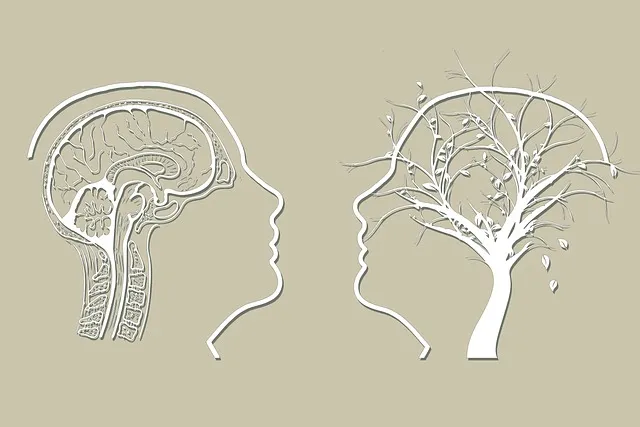Emotional Intelligence (EI) is a powerful tool in mental health treatment, recognized at Kaiser's inpatient services in Northglenn. It involves managing one's emotions and understanding others', leading to better communication and stronger relationships—essential for complex healthcare environments, especially trauma support. A holistic EI development program at Kaiser focuses on self-awareness, empathy, and effective communication through specialized therapy and stress reduction methods. Understanding EI and its benefits, such as improved well-being and enhanced care, can be crucial for those seeking mental health services, including inpatient options in Northglenn.
Emotional intelligence (EI) is a powerful tool for personal and professional growth, enabling individuals to navigate complex social landscapes with ease. This article explores the concept of EI, highlighting its potential to transform lives. We delve into the unique Kaiser Inpatient Mental Health Northglenn approach, focusing on developing EI skills. By examining key components and practical strategies, readers will discover how to enhance self-awareness, foster empathy, and improve communication—all essential elements for building emotional intelligence.
- Understanding Emotional Intelligence: Unlocking its Potential
- The Kaiser Inpatient Mental Health Northglenn Approach to EI Development
- Key Components of Building Emotional Intelligence
- Strategies for Enhancing Self-Awareness in Daily Life
- Practicing Empathy: A Powerful Tool for Effective Communication
Understanding Emotional Intelligence: Unlocking its Potential

Emotional intelligence (EI) is a powerful tool for personal growth and success. At facilities like Kaiser’s inpatient mental health services in Northglenn, EI is recognized as a key component to effective treatment and recovery. Understanding EI involves recognizing and managing one’s own emotions, as well as understanding the emotions of others. This ability fosters better communication, strengthens relationships, and enhances decision-making—all crucial aspects for those seeking trauma support services or navigating complex healthcare environments.
Building emotional intelligence is not just about acquiring skills; it’s a process that involves self-awareness, empathy, and effective communication. Resilience building through EI enables individuals to cope with challenges, adapt to change, and maintain mental well-being. Moreover, healthcare provider cultural competency training often emphasizes the importance of EI in delivering empathetic care. By cultivating emotional intelligence, individuals can create a more nurturing environment, whether it’s for themselves or for others seeking trauma support, ultimately unlocking their full potential for personal growth and improved relationships.
The Kaiser Inpatient Mental Health Northglenn Approach to EI Development

Kaiser Inpatient Mental Health Northglenn takes a holistic approach to emotional intelligence (EI) development, recognizing that mental health and EI are intricately linked. Their program focuses on empowering individuals to navigate life’s challenges with resilience and self-awareness. Through specialized therapy sessions, patients engage in activities designed to foster self-expression, empathy, and effective communication—key components of emotional intelligence.
This unique approach integrates various stress reduction methods and trauma support services tailored to individual needs. By addressing past traumas and teaching coping mechanisms, the program helps build inner strength development, enabling individuals to manage their emotions and interact with others in healthier ways. The Kaiser Northglenn team believes that cultivating emotional intelligence is a transformative process that can lead to profound personal growth and improved overall well-being.
Key Components of Building Emotional Intelligence

Building emotional intelligence involves a multifaceted approach that addresses key components essential for personal growth and effective interactions. Among these components, self-awareness stands out as foundational; understanding your emotions and how they influence your thoughts and actions is crucial. This introspective practice forms the basis for regulating emotions, enabling individuals to respond thoughtfully rather than reacting impulsively in various situations.
The development of emotional intelligence also hinges on empathy, the ability to recognize, understand, and share the feelings of others. Cultivating empathy strengthens interpersonal connections by fostering a deeper understanding and appreciation for diverse perspectives. In tandem with self-awareness and empathy, effective communication is vital. Mind Over Matter Principles advocate for transparent, compassionate, and constructive exchanges that promote mental wellness. Engaging in regular Self-Care Routine Development for Better Mental Health practices further supports these endeavors, ensuring individuals possess the resilience to navigate emotional challenges and maintain a positive mindset.
Strategies for Enhancing Self-Awareness in Daily Life

Developing self-awareness is a powerful tool for anyone looking to enhance their emotional intelligence. In daily life, individuals can practice mindfulness by paying attention to their thoughts and feelings. Simple techniques like journaling, meditation, or even taking short breaks during busy days can help one become more attuned to their emotions. This increased self-awareness fosters better understanding of personal triggers, strengths, and vulnerabilities, which are essential elements in managing one’s mental health, especially when navigating challenging situations.
For those seeking support for their mental well-being, considering options like Kaiser’s inpatient mental health services in Northglenn could be valuable. Building a robust self-care routine is another effective strategy. This involves setting aside dedicated time for activities that nurture both physical and mental health, such as exercise, healthy eating, adequate sleep, and engaging in hobbies or creative pursuits. Incorporating these practices into one’s lifestyle can significantly contribute to emotional well-being and further enhance self-awareness, ultimately promoting positive mental health outcomes.
Practicing Empathy: A Powerful Tool for Effective Communication

Empathy is a cornerstone of emotional intelligence and plays a pivotal role in enhancing communication, especially for those seeking mental health services like those available at Kaiser’s Northglenn inpatient facility. Practicing empathy means putting yourself in another person’s shoes, understanding their feelings, and recognizing their unique perspective. This powerful tool enables caregivers and patients to forge deeper connections, fostering an environment of trust and safety.
By cultivating empathy, mental healthcare professionals can improve patient engagement and satisfaction. It allows for more nuanced interactions, ensuring cultural sensitivity in care, which is essential for addressing the diverse needs of a growingly varied patient population. This skill is particularly beneficial in preventing and managing conditions like depression, as it promotes early detection and supportive interventions tailored to each individual’s experience.
Emotional intelligence (EI) is a powerful tool that enhances personal and professional relationships, as demonstrated by the Kaiser Inpatient Mental Health Northglenn approach. By understanding EI’s potential and implementing strategies such as self-awareness practices and empathy, individuals can significantly improve their emotional regulation and communication skills. The key components outlined in this article provide a solid framework for building EI, enabling folks to navigate life’s challenges more effectively. Remember that, by focusing on these aspects, you could be taking a significant step towards personal growth and revolutionizing your interactions with others.






